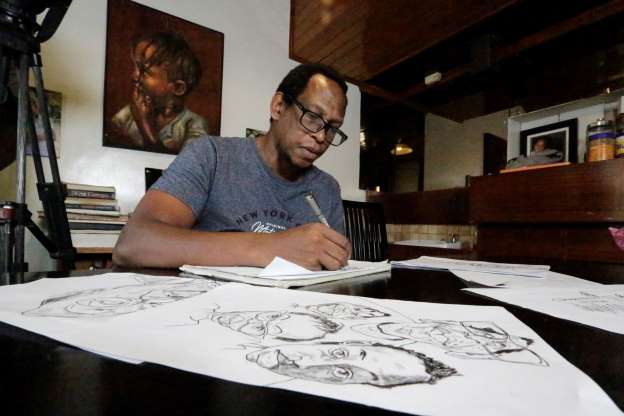Across the world, many were scratching their heads Friday — especially in countries that have long been advised by Washington on how to run elections — wondering if those assertions could truly be coming from the president of the United States, the nation considered one of the world’s most emblematic democracies.
“Who’s the banana republic now?” Colombian daily newspaper Publimetro chided on the front page with a photo of a man in a U.S. flag print mask.
The irony of seeing U.S. President Donald Trump cut off by major media networks Thursday as he launched unsubstantiated claims lambasting the U.S. electoral system was not lost on many. The U.S. has long been a vocal critic of strongman tactics around the world. Now, some of those same targets are turning around the finger.

Venezuelan President Nicolás Maduro laughed as the vote dragged on past Tuesday, briefly breaking into the hymn of his nation’s annual beauty contest on state TV, singing, “On a night like to night, any of them could win.”
In Africa — long the target of U.S. election guidance — one Kenyan commentator spun out satiric tweets, drawing freely from clichés that long have described troubled elections and questioning the strength of democracy in the U.S.
Kenyan cartoonist Patrick Gathara tweeted that Trump “has barricaded himself inside the presidential palace vowing not to leave unless he is declared the winner,” with a mediator “currently trying to coax him out with promises of fast food.”
Along with the mockery comes dismay. Many people in Africa see the U.S. as a bellwether for democracy and, after troubled votes in Tanzania and Ivory Coast in recent days, they looked to what Washington might say.
“We are asking ourselves, why is the U.S. democratic process appearing so fragile when it is meant to be held up to us in the rest of the world as a beacon of perfect democracy?” said Samir Kiango, a Tanzanian out in his country’s commercial capital Friday.
For decades, the U.S. has been an advocate for democracy abroad, using diplomatic pressure and even direct military intervention in the name of spreading the principles of a pluralistic system with a free and fair vote for political leaders. These tactics have generated both allies and enemies, and this year’s presidential vote perhaps more than any other is testing the strength of the values it promotes around the world.
And the world is paying close attention.



